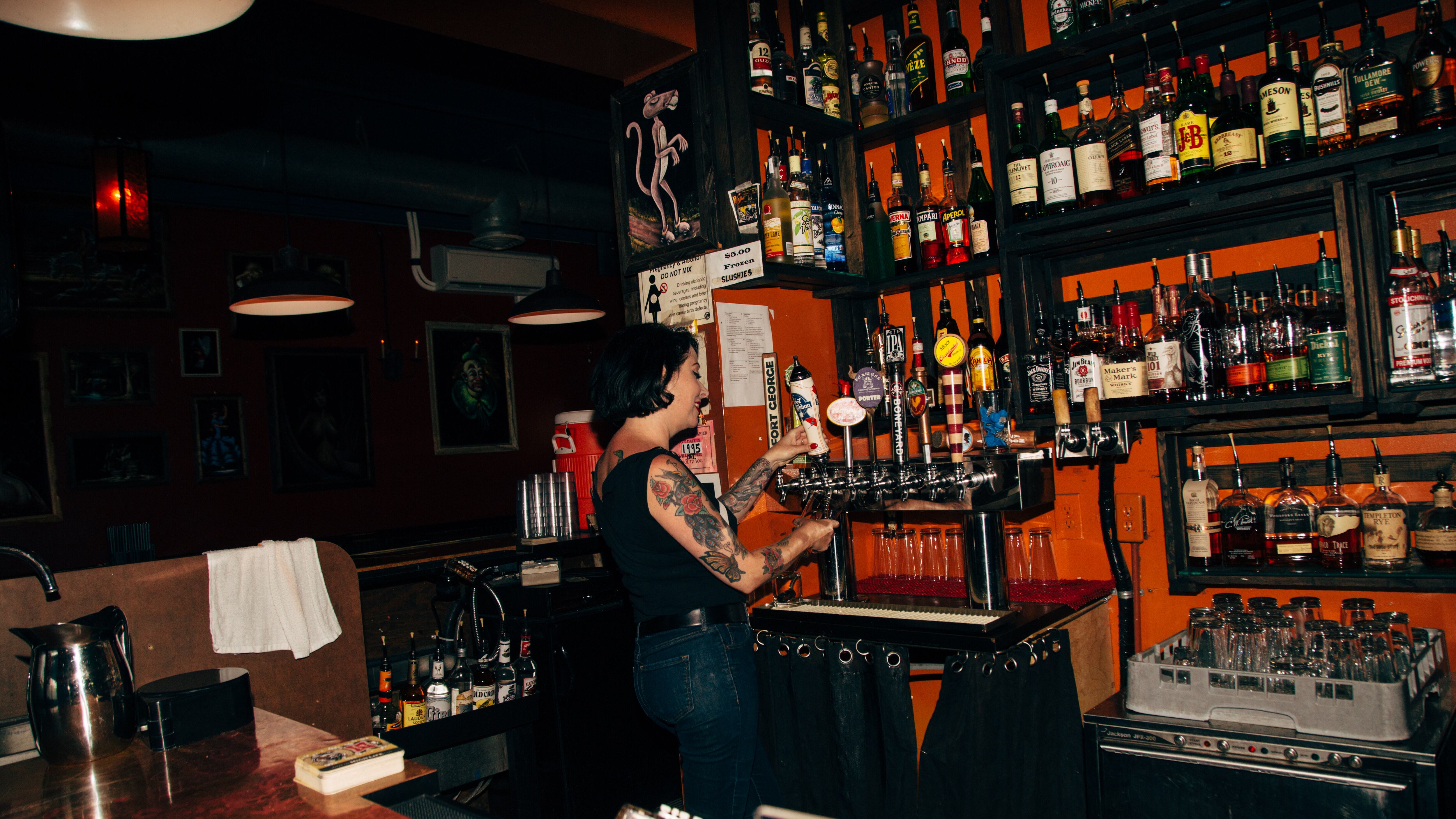THE ISSUE: Sometimes 50 cents is a lot more than 50 cents. This is one of those times. On May 18, the Oregon Liquor and Cannabis Commission took public comment for the second time on whether to ratify Gov. Tina Kotek’s proposal for a 50-cent surcharge on every bottle of hard liquor the state sells. That might seem a simple question. But with a new governor, turmoil at the OLCC over liquor and cannabis scandals, and the specter of a possible privatization measure on the 2024 ballot hanging over the commission, it’s anything but.
THE BACKGROUND: In 2009, during the Great Recession, Gov. Ted Kulongoski asked the OLCC to tag a “temporary” 50-cent surcharge on each bottle of booze. That was a handy way to raise some revenue because increasing the price of liquor requires only a vote of the OLCC board—whose members the governor appoints—rather than the three-fifths majority vote of both chambers of the Legislature that tax increases require. The OLCC has renewed that “temporary” tax every two years since. Kotek is now asking commissioners to double it to $1, which would raise about $45 million for addiction and mental health services over the next two years.
THE ADVOCATES: Last week, the OLCC heard from public health officials and advocates for addiction and mental health services. They presented a two-pronged argument: Research shows that higher prices reduce consumption, which they like; and Oregon suffers from high levels of substance use disorder and untreated mental illness, and could use more money for both. In a spirited session marked by self-interest and speculation, Dr. Tim Naimi, director of the Canadian Institute for Substance Use Research at the University of Victoria, cited research and policy reasons for raising taxes. “Higher taxes and prices reduce consumption and heavy drinking in particular,” Naimi testified. “Higher prices [also] reduce total deaths from liver disease, at least seven types of cancer, motor vehicle crashes and suicides.”
THE OPPOSITION: Representatives of both the liquor industry and Oregon distilleries turned out to lobby against the increase. They raised a whole host of arguments. Among them: Margins for producers and Oregon’s disproportionately large hospitality industry are thin. Bill Perry, a lobbyist for the Oregon Restaurant & Lodging Association, said his members are still recovering front the pandemic and battling a tight labor market and inflation. “Supplies are either increasing in cost or we’re struggling with availability,” he said.
Critics of the hike also noted Oregon’s tax on liquor (i.e., the markup from the state’s wholesale price to retail) is the nation’s second highest, while the state’s beer and wine taxes are among the lowest. Tony Vezina, director of 4D Recovery, addressed that inequity in questioning by commissioners. “They have incredibly powerful lobbyists,” Vezina said of the beer and wine industry. “We’ve tried to pass a tax on those other types of alcohol several times, and we’ve gotten beaten every single time.”
WHY IT MATTERS: As a state, Oregon struggles with substance use disorder, ranking fifth nationally in the percentage of people addicted to alcohol. Kotek has placed making big improvements in addiction and mental health services among her highest priorities. Meanwhile, at least some of the seven commissioners appear poised to vote against the increase, which would mark a significant, although not unprecedented, rebuke to the governor (the commission spiked a request for a 25-cent increase in 2021). Kotek already replaced commission chair Paul Rosenbaum over the Pappy Van Winkle bourbon scandal; the scheduled June 15 vote on the 50-cent surcharge will be a reflection of her commitment to funding services and her sway with the commission. Kotek spokeswoman Elisabeth Shepard says the governor has gotten personally involved: “She directly discussed the surcharge with commissioners individually.”
